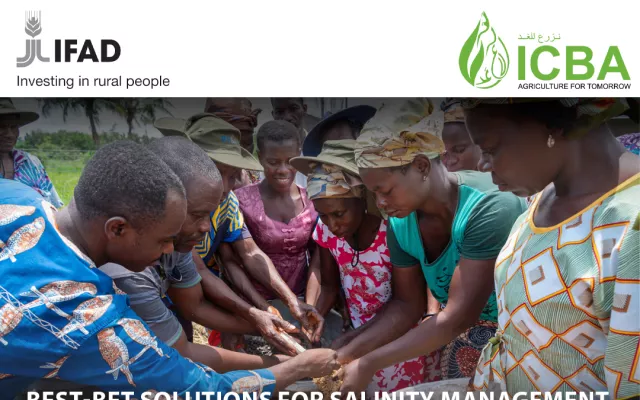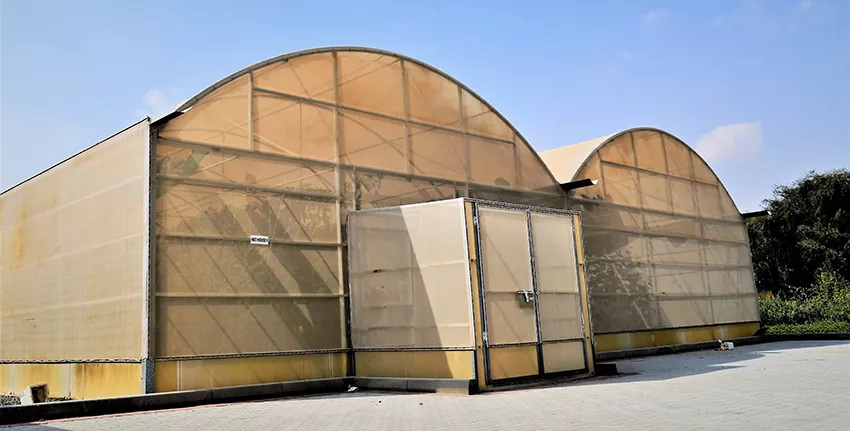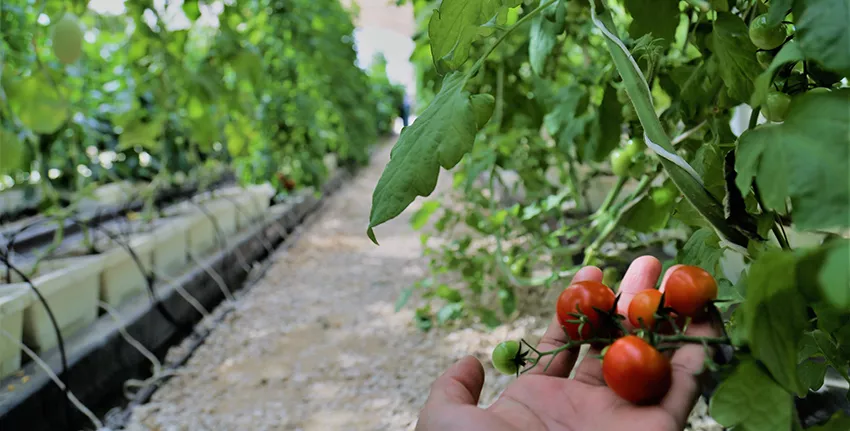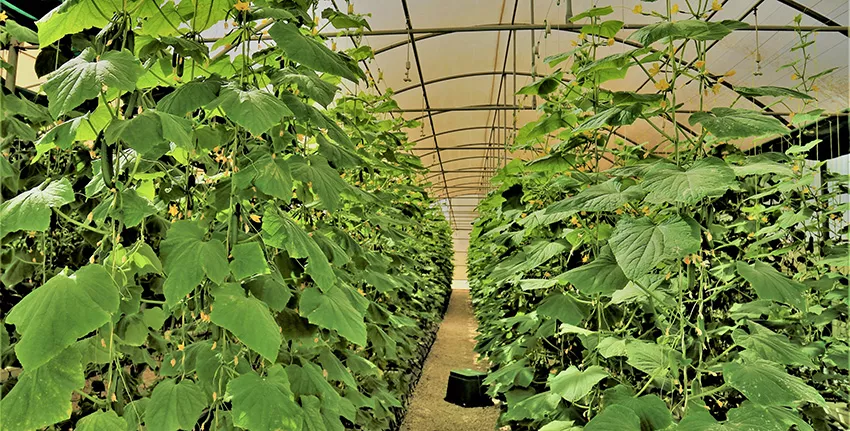Are net-houses the future of horticulture in the UAE?
5 April 2018
A highly efficient low-cost net-house technology can help to make horticulture significantly more feasible and profitable agri-business in the United Arab Emirates (UAE), while saving water and energy, an extensive study by the International Center for Biosaline Agriculture (ICBA) has concluded.
The study forms part of ICBA’s efforts to contribute to future food security of the UAE and support the Government’s initiatives in this field. The UAE is keen to continuously improve technologies and incubate innovations that will contribute to preserving its natural resources for future generations. The main objective is to maximize the horticulture outputs using essential inputs within the water-energy-food nexus.
In an effort to find ways to improve water and energy use efficiency of horticultural production in local conditions, a team of researchers at ICBA has completed a long-term evaluation of growing cucumber, tomato, sweet pepper and other vegetables in a widely-used high-tech greenhouse and a traditional net-house designed to cope with UAE conditions.
The researchers compared a model of greenhouse with a fan-pad cooling system and a net-house model equipped with a misting system and a shade net.
They found that greenhouse cooling is the most water-intensive process as it consumed 1.6 times more water than the amount required to irrigate cucumber. In contrast, the misting system in the net-house required about 20 percent of the water used to irrigate cucumber. Data also showed that the greenhouse consumed 62 times more energy than the net-house.
Dr. Aziz Hirich, a horticulture scientist at ICBA, commented on the study: “Our research demonstrates that the net-house can be a low-cost alternative to the common greenhouse. More importantly, this technology can help to considerably reduce energy and water consumption for vegetable production, which is a very important factor given scarce water resources. We are now working with farmers to introduce this technology on farms in the UAE.”
The findings also have implications for both water and food security. As the UAE is one of the most water-scarce countries in the world, it relies on groundwater reserves and energy-intensive desalinated water to meet the domestic demand, including in agriculture. The country is also dependent on food imports like vegetables and fruits.
This means there is great potential to increase horticultural production in the UAE as the food demand is set to grow, while lessening the environmental impact.
As water resources are likely to become scarcer in the future, it is important to implement sustainable solutions for food production. And local growers should adopt technologies that save more water and energy.












